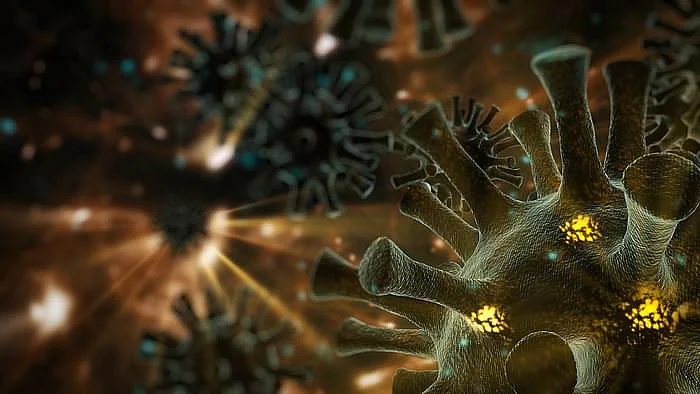UK COVID Variant Reaches India: How Many Tested? What Next?
How has the new COVID strain become the most common form of the virus in a matter of months? Why is this concerning?

advertisement
Video Editor: Ashutosh Bharadwaj
As many as 20 people, who returned from the UK to India, have tested positive for the new coronavirus variant so far, the Health Ministry announced on Wednesday, 30 December.
On Tuesday, the government had said six UK returnees were found to be infected with the new variant. On Wednesday, 14 new cases were announced.
"All these persons have been kept in single-room isolation in designated health care facilities by respective state governments. Their close contacts have also been put under quarantine. Comprehensive contact tracing has been initiated for co-travellers, family contacts and others. Genome sequencing on other specimens is going on," the government said in a release.
Here’s all you need to know.
Who is being tested for the new variant?
- From 25 November to 23 December 2020 midnight, about 33,000 passengers disembarked at various Indian airports from UK
- All these passengers are being tracked and subjected by States/UTs to RT-PCR tests
- Other than this, all international passengers who entered the country between 9 December to 22 December and tested positive for COVID-19 will be subject to genome sequencing
So basically, a genomic testing will be done for all passengers from the UK who test positive?
Yes, that’s correct. All contacts (without any exception) of those travellers who arrived at various airports and tested positive would be subjected to institutional quarantine at separate quarantine centres and would be tested as per ICMR guidelines.
What is done after genome testing?
- If the report of the sequencing is consistent with the current SARS-CoV-2 virus genome circulating in the country, the ongoing treatment protocol – including home isolation/treatment at facility level – as per case severity may be followed.
- If the genomic sequencing indicates the presence of a new variant of SARS-CoV-2, then the patient will continue to remain in a separate isolation unit. While necessary treatment as per the existing protocol will be given, the patient shall be tested on the 14th day, after having tested positive in the initial test.
- In case the sample is found positive on the 14th day, further samples may be taken until two consecutive samples taken, 24 hours apart, are negative.
How many have tested positive?
So far only 114 have been found positive. These positive samples have been sent to 10 INSACOG labs (NIBMG Kolkata, ILS Bhubaneswar, NIV Pune, CCS Pune, CCMB Hyderabad, CDFD Hyderabad, InSTEM Bengaluru, NIMHANS Bengaluru, IGIB Delhi, NCDC Delhi) for genome sequencing.
A total of 6 samples of 6 UK returnee persons have been found to be positive with the new U.K variant genome. 3 in NIMHANS, Bengaluru, 2 in CCMB, Hyderabad and 1 in NIV, Pune.
Why is the new variant concerning?
The new variant is named VUI-202012/01 (the first “Variant Under Investigation” in December 2020) and is defined by a set of 17 changes or mutations. Changes in this part of spike protein may, in theory, result in the virus becoming more infectious and spreading more easily between people.
According to a BBC report, three factors are causing concern over the new variant of COVID-19:
- It is said to spread faster than the other versions – 70 percent more infectious
- It is the most common version of the virus in the UK
- There have been changes to the spike protein of the virus, which plays a key role in unlocking the doorway to the body's cells
Does this mean the variant is more dangerous?
There is no evidence to support this yet. However, the increase in rate of transmission means more people could get infected than before and this leads to an added burden on an already strained healthcare system, with more people needing hospital treatment.
Susan Hopkins, joint medical adviser for NHS Test and Trace and Public Health England, said:
How common is this variant?
It is believed to have been first detected in September. By November, around a quarter of cases in London were of the new variant. However, by mid December, nearly two-thirds of cases in London were of the new virus.
Over the last one week, the number of cases in London doubled, with at least 60 percent of the infections being from this variant.
How was it detected?
The new variant was picked up by the COVID-19 Genomics UK (COG-UK) consortium, which undertakes random genetic sequencing of positive coronavirus samples around the UK. The consortium is a partnership of the UK’s four public health agencies, as well as the Wellcome Sanger Institute and 12 academic institutions.
Is it found only in the UK?
While the variant is found across UK, it is heavily concentrated in London and South East England.
BBC, quoting data from Nextstrain, has reported that viral samples around the world suggest that cases in Denmark, Netherlands, and Australia have come from the UK.
Has a mutation happened before?
The COVID-19 virus originated in Wuhan in November 2019 and the variant of the virus found in different corners of the world, will be different.
Will vaccines work against this variant?
Yes, they do – at least as of now.
The new variant has mutations to the spike protein that the three leading vaccines are targeting.
Sharon Peacock, director of COG-UK, told the Science Media Centre briefing:
“With this variant, there is no evidence that it will evade the vaccination or a human immune response. But if there is an instance of vaccine failure or reinfection then that case should be treated as high priority for genetic sequencing.”
(At The Quint, we question everything. Play an active role in shaping our journalism by becoming a member today.)